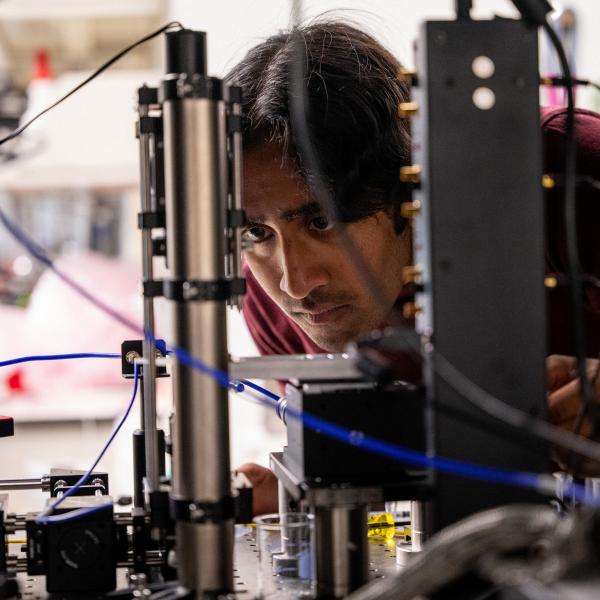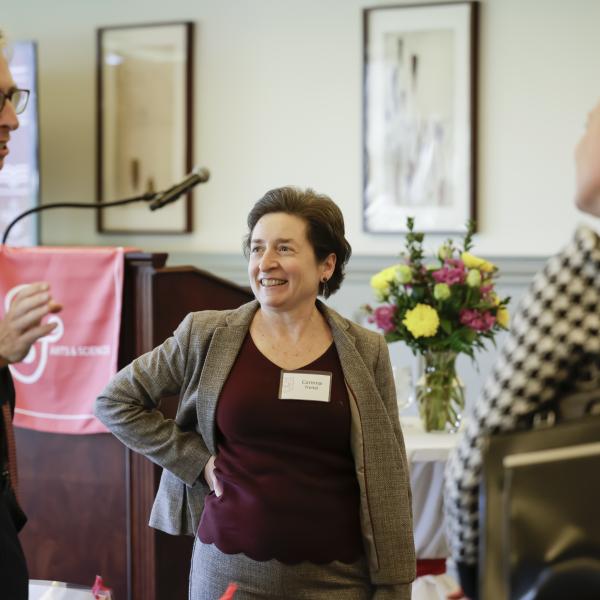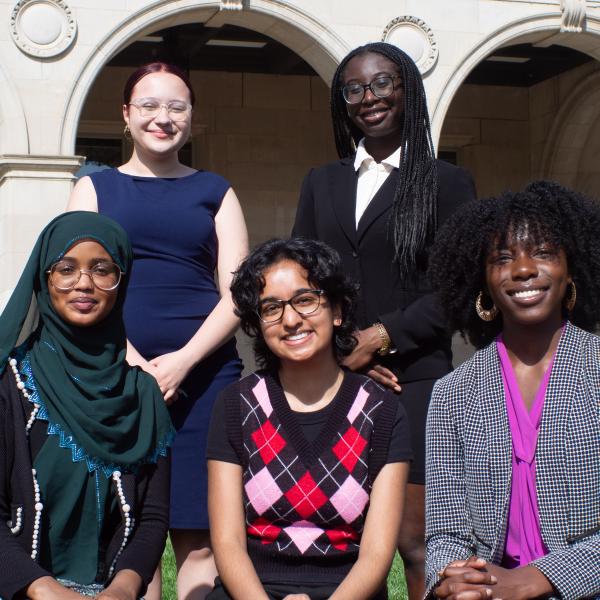In fall 2021, the programs in International and Area Studies and East Asian Studies will merge to become Global Studies, offering more flexibility and broader coursework options for students.
Beginning July 1, students looking for courses in International and Area Studies (IAS) will need to look under a new name: Global Studies. The renaming isn’t simply cosmetic; it represents a series of broader, exciting changes that will provide students with an additional concentration option and more flexibility to design a program to suit their interests.
So why the name change? The program began nearly 40 years ago as a major named International Studies. At the time, similar programs were founded at universities across the country in response to the events of World War II and the rising tide of globalization. As Andrew Sobel, director of International and Area Studies, explains it, “International Studies came about as a means of broadening the framework beyond traditional political science, to include history, sociology, anthropology, and economics.”

International and Area Studies program.
During the Cold War, the U.S. government began funding language and regional studies programs at U.S. universities with the goal of cultivating a workforce with an awareness and understanding of complex geo-political relationships. These programs often went by the new name of International and Area Studies. Another naming shift began in 2008, when the first Global Studies conference was held at the University of Chicago. This broader term expands from a focus on states and nations to include all global actors.
“Thinking about relations between societies or between states is about a lot more than just relationships between nations and governments,” Sobel explained. “It’s thinking about relations between non-governmental organizations, between private citizens, between cities, between religions; and with problems like climate change, that spill across borders. It’s about thinking beyond the single nation state. I like to turn the phrase ‘global studies’ because it's much more encompassing, it’s a little more modern, and it’s not just about the nation state.”
But the upcoming changes are about more than just the name. Starting July 1, IAS will merge with the East Asian Studies program. This will enable the new Global Studies program to offer a concentration in Global Asias, alongside existing focus areas. The name Global Asias also emphasizes a more modern approach to thinking about Asia, reflecting the importance of the Pacific Rim in global political economy.
"There will also be an ability to study Asia beyond the traditional approach, which is heavy on language, history, and culture, and to see Asia as more than just a set of states in a specific geographic location, but also a set of ideas and identities that are connected to the broader world,” Sobel said
Sobel gives current and former IAS students credit for pushing the program to respond to modern trends, encouraging the faculty to move beyond their traditional departmental silos and toward a more interdisciplinary approach. Students in the program seek out courses across the university to follow their interests when building their major concentration coursework. This curiosity and drive to understand complex global problems serves students well after graduation. Sobel noted that in the last eight years, four IAS students have been named Yenching Scholars at the Yenching Academy of Peking University in Beijing, a prestigious master’s program in China for foreign scholars.
“You can really see how passionate our students are through the work they do in our undergraduate student organization, Sigma Iota Rho (SIR), which is an incredibly active group on campus. They co-sponsor the St. Louis International Film Festival, they run a cultural exposition in the spring in DUC with over 500 participants, and they run a town hall on a policy issue every semester,” Sobel shared.
The programmatic name changes, from IAS to Global Studies, and from East Asian Studies to Global Asias, demonstrate the ways in which the program is looking toward the future. “Global issues are both crucial and complex in nature, and the new program name better reflects the important work of our faculty and students in this area,” said Jennifer Smith, dean of the College of Arts & Sciences. “This is an important opportunity for our students to engage in interdisciplinary work across the College and the university, and to bring that spirit of collaboration and deep knowledge of global issues with them after graduation.”
Overall, the move to Global Studies signifies the ways in which Arts & Sciences departments and programs evolve to respond to student interests. It’s an exciting time for students to join the new Global Studies program, which now offers an additional concentration, greater flexibility, and expanding curriculum options to think through solutions to global problems.




